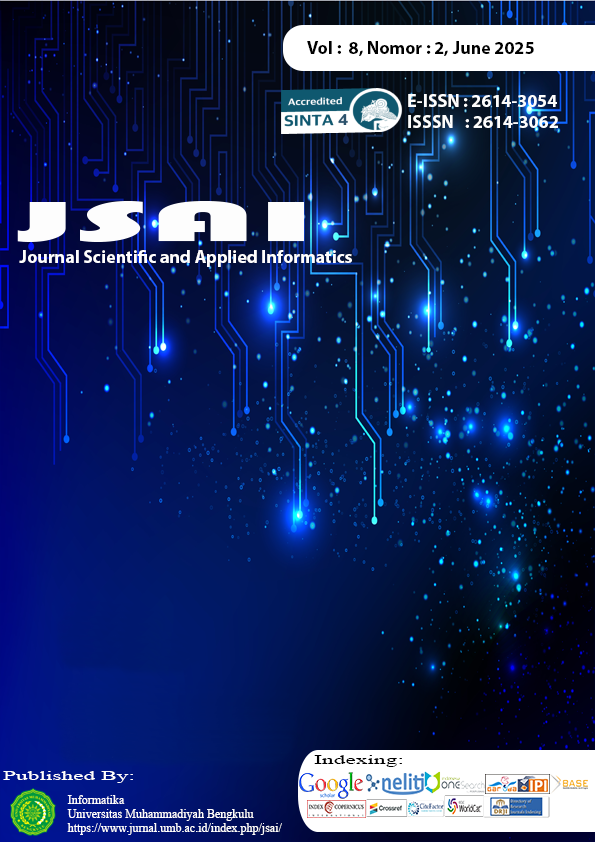Preliminary Study: Evaluation of Communication Service Quality in Academic Environment Using Sentiment Analysis
DOI:
https://doi.org/10.36085/jsai.v8i2.8765Abstract
Google Chat was used in the Faculty of Engineering and Informatics to support academic and non-academic collaboration, with advantages such as real-time, structured communication that is easily accessible by lecturers, students, and administrative staff. This study aimed to analyze the sentiment of Google Chat conversations using the support vector machine (SVM) model to categorize sentiment into positive, negative, and neutral. The data preprocessing process included tokenization, stemming, stop words removal, and text cleaning, using Python with NLTK, Scikit-learn, and Pandas libraries. The study adopted a quantitative approach to analyze sentiment patterns from Google Chat conversations about the quality of services at the Faculty of Engineering and Informatics, as well as experiments to develop and test machine learning models. The preliminary study showed a dataset of 3,735 cleaned data, with invalid or empty elements removed. The data was then categorized into three sentiments: positive, negative, and neutral, based on sentiment analysis of communication text related to services in the academic environment. The next research will focus on selecting the appropriate classification model to provide accurate assessments of the faculty’s service quality.
Downloads
Published
Issue
Section
License
Copyright (c) 2025 Desi Ramayanti, Imam Mulya, Anita Ratnasari, Sri Dianing Asri, Ivan Maulana, Muhammad Rizal

This work is licensed under a Creative Commons Attribution-NonCommercial-NoDerivatives 4.0 International License.







